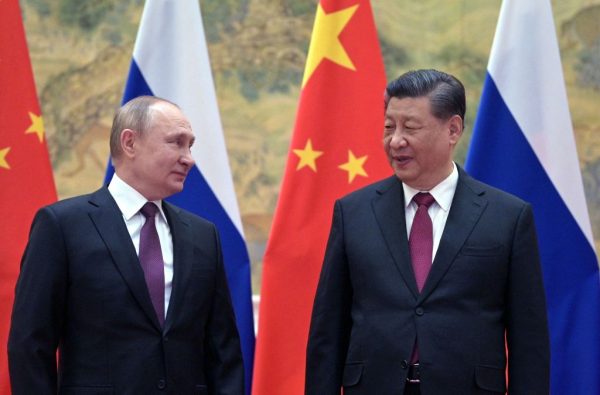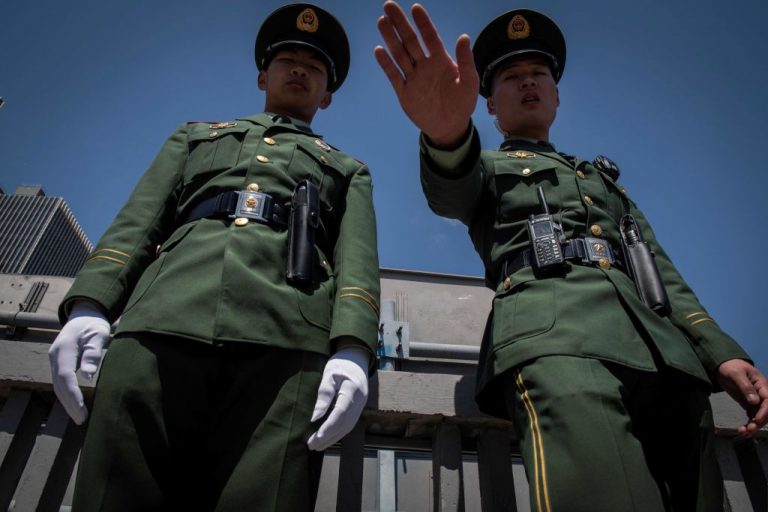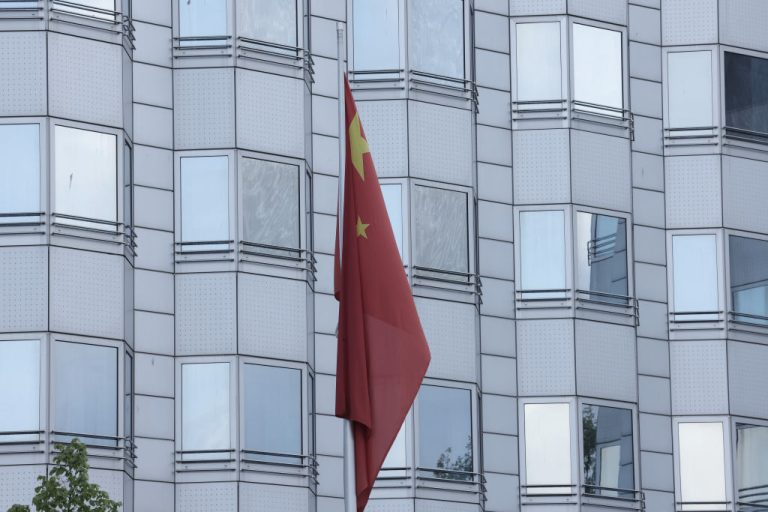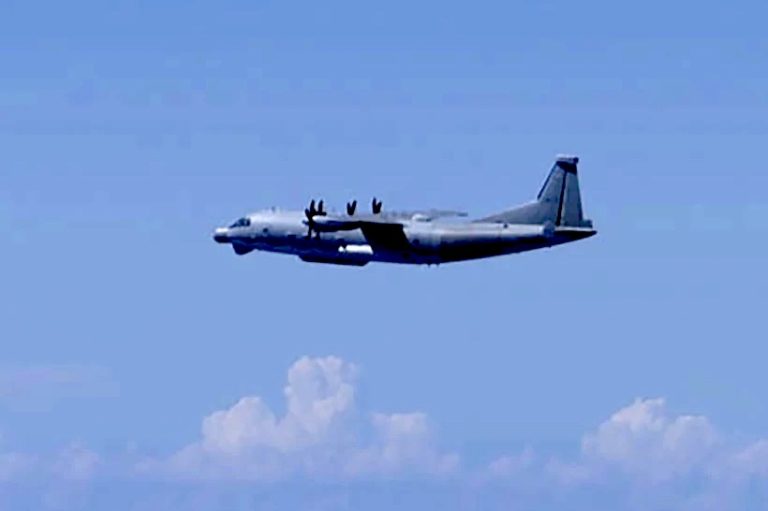As Russia’s invasion of Ukraine rages into its ninth day, Beijing has still refused to publicly condemn Putin’s actions and more international pressure is now being applied onto China.
However, according to several observers and financial analysts, Beijing’s ability to effectively distance itself from the war is becoming increasingly more difficult, resulting in potential long-term damages to the country’s economic interests.
“China is in a lose-lose situation with respect to Ukraine,” said Elizabeth Wishnick, a senior research scientist at CNA, a U.S.-based non-profit research and analysis organization. “If a Russian puppet state results from this conflict, Chinese companies will face sanctions and there will be self-imposed limits to business activity and intergovernmental ties, as in Crimea.”
“If Ukraine retains its autonomy and sovereignty, China will face reputational costs due to the widespread perception in the US and Europe that the Chinese government has been an enabler, if not a supporter, of Russian aggression,” Wishnick said.
‘Belt and Road’ could falter further
Particularly when it comes to Beijing’s ambitious Belt and Road Initiative (BRI), China’s refusal to condemn the Kremlin’s invasion could spell disaster for it as Ukraine is considered a vital bridgehead for the project.
The BRI was inaugurated in 2013 and aimed to “facilitate trade and promote connectivity and cooperation among countries in Eurasia and some African countries.” The initiative also planned to develop two new trade routes connecting China to the rest of the world.
RELATED:
- Is China the Real Winner of the Russia-Ukraine War? — A closer partnership between Russia and China looks good on paper, but short-term risks abound, potentially threatening Xi’s third term as CCP leader
While the project began as an effort to develop an expanded, interdependent market for China by growing its economic and political prowess through infrastructure and technological innovation, it has faced considerable financial challenges in recent years.
Success
You are now signed up for our newsletter
Success
Check your email to complete sign up
Li Yan, a researcher at World Economics and the Politics Institute of Chinese Academy of Social Sciences, described the strategic significance of Ukraine in a research report published in 2018. In it, Li describes the importance of Ukraine’s geographical position and how it acts as a connecting point throughout Europe.
The Chinese regime has also placed importance on Ukraine and viewed it as an essential route in promoting its BRI initiative to other European countries, particularly those of Eastern Europe.
Furthermore, Ukraine is an important agricultural powerhouse and has developed considerable business ties with China, which relies on vast imports of foreign grain. Since 2019, China has been Ukraine’s biggest trading partner, with overall trade totalling US$18.98 billion last year, according to data from the State Statistics Service of Ukraine.
And since Ukraine inherited advanced military and manufacturing industries from the former Soviet Union, it helps facilitate transportation facilities for the BRI and connect it to other countries in Europe, and also serves as an important source of military tech for Beijing.
Looming financial woes for Beijing
Ukraine joined China’s BRI in 2017, and the two countries signed agreements on cooperation in areas such as financial and infrastructure projects in 2020. According to official Chinese data, direct investments from Chinese companies into Ukraine’s economy reached USD$150 million by the end of 2019.
In 2016, China Oil and Foodstuffs Corporation (COFCO) built a $75 million grain and oil transshipment terminal at the Nikolaev seaport in southern Ukraine. China Pacific Construction Company was also contracted in 2017 to build a metro line in Ukraine’s capital, Kyiv, and mobile giant Huawei won a contract in 2019 to build a 4G network for the Kyiv metro and was selected to help improve Ukraine’s network security and safety in 2020.
However, these projects, which Ukraine’s government welcomed with open arms, are viewed differently in the eyes of Russia.
If Russia seizes Ukraine, China’s BRI in Ukraine will most likely be scrapped, because “the Ukrainian government has signed these contracts and introduced these projects with China, but if a new government comes up, those projects would probably be re-shuffled, some might be abandoned, and some might be handed over to Russia,” Mike Sun, a North America-based investment consultant said.
China extends lifeline to Russia’s crashing economy
China’s move last week to lift all import restrictions on Russian wheat, which had previously been restricted due to phytosanitary concerns, was viewed by some in the international community as tacit support for Moscow.
READ MORE:
- Chinese Media Accidentally Publishes Censorship Guidelines on Russia-Ukraine Conflict
- Beijing Refrains From Calling Out Russian Invasion, But Urges Chinese Nationals in Ukraine to Avoid ‘Unstable Areas’
- Western Intelligence Report: China Asked Russia to Delay Invasion of Ukraine Until After Winter Olympics
Though Chinese President Xi Jinping and his Russian counterpart Vladimir Putin signed the agreement in Beijing on the eve of the Winter Olympics and then attended the Games’ opening ceremony together, some observers have interpreted the gesture as an effort to prop up the Russian economy in the face of crippling sanctions by the west.

“China’s words about supporting international law will be perceived as empty rhetoric … This will hinder China’s image for years to come,” said Yurii Poita, head of the Asia-Pacific section at the Centre for Army, Conversion and Disarmament Studies.
Escalating sanctions from the West would likely also increase Russia’s economic dependence on China, which could in turn fuel Western perceptions that Beijing was helping Moscow circumvent punitive measures, and may result in a round of sanctions against the Chinese economy itself.
A careful balancing act
The situation in Ukraine puts China in a delicate situation and suggests a careful balancing act by Beijing as it seeks to maintain ties with Moscow in the public eye without openly violating sanctions, which could jeopardize its access to key Western export markets and the U.S. dollar-centric international financial system.
“It’s conceivable that Chinese companies who operate in — or have asset exposure to — the Russian market could see themselves targeted by US or other Western measures, including in sensitive sectors such as technology,” said Nick Marro, lead analyst for global trade at The Economist Intelligence Unit (EIU).
Since the invasion began, the Russian ruble has plunged more than 30 percent and hit an all-time low of 109.55 against the dollar on Wednesday, March 2. Russian stocks have also seen massive sell-offs and increasing sanctions placed against the country’s oligarchs have sent the world’s largest country into a complete economic collapse.







